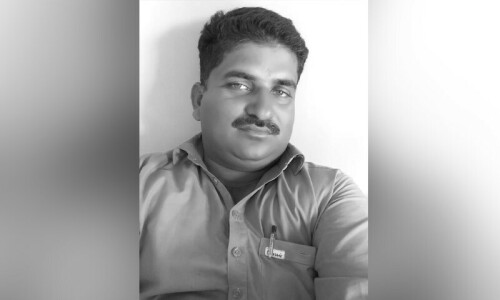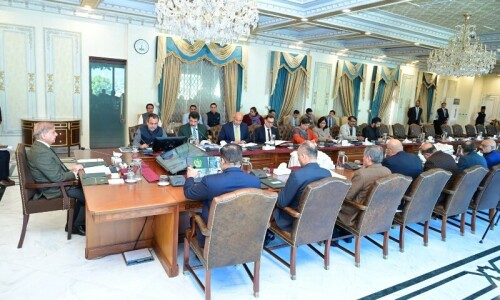OSLO: Norway has announced a small but significant grant for reforms of Afghanistan’s justice sector, which observers say is still severely underdeveloped seven years after the US invasion.Norway’s contribution of $6 million will go to Afghanistan’s justice sector reform programme, with a total cost of $27 million. It is intended for everything from legal reform and staff education to rehabilitating buildings, providing computers and other communication equipment, and creating legal assistance offices to aid the most vulnerable such as women, nomads and refugees.“There are serious challenges as regards training, infrastructure and all these issues. After all, Afghanistan has faced constant conflict for the past three decades,” police adviser Henning Høgseth at the Norwegian Foreign Policy Institute (NUPI) said.
“The reform of the judiciary has gone really slowly. Norway’s foreign department has sent judges and state lawyers and prison officials to train the Afghans, but few other countries have contributed trainers for any part of the judiciary at all. Then there is a challenge as regards international jurisprudence and the Afghan constitution, which are not completely compatible, as well as local traditions the elder councils and Sharia laws,” he said.
On top of this the security situation in many parts of Afghanistan appears to be spiralling downhill due to a rise in banditry, as well as an increase in attacks by Taliban insurgents and their allies in the south and east. In a recent statement 100 aid agencies warned that increased instability was threatening to make it impossible to operate in some areas of the country.
“Justice sector reform is central to efforts by the Afghans and the international community to build a sustainable state founded upon the rule of law and a democratic system of governance, but progress is affected by the security situation,” the foreign department said in a written statement, without elaborating.
“Increased violence will of course affect reform efforts,” Høgseth said. “Last year almost a thousand policemen were killed in attacks by bandits and the Taliban, and if the mainly bandit attacks on help convoys across the country now begin to increase, it will have an enormous effect on the general situation,” he said.
Justice reform is one of the so-called pillars of the Afghan government’s UN-conceived Security Sector Reform framework (the others relate to rebuilding the police and army, battling the Afghan heroin trade, and the disarmament, demobilisation and reintegration (DDR) of combatants).
“There has been some progress with police reform after the United States stepped in with a teaching course right before Christmas that is almost an exact copy of what they did with the Afghan army. The real delays relate to justice reform, by which I mean the criminal justice system, the courts, the prison service, and so on,” Høgseth said.
“In general the approach simply hasn’t worked. DDR was handed to Japan, and the police reform was meant to be Germany’s responsibility; the US took the army, Italy took justice reform and Britain took counter-narcotics, but the whole process has been inadequately coordinated.”
Høgseth believes it will be necessary to relinquish more control over the reform process to the Afghans themselves.
“We can’t just blame the Afghans for lack of progress with the reforms, as they were handed a system that had been decided almost before it hit the ground, to put it like that. What is needed is local institutional capacity building the handing over of responsibility to Afghans themselves – we’re not the ones that are going to run the country after all,” he said.
If this does not happen, Høgseth fears that it will take a very long time to rebuild Afghanistan.
“If you pump too much money into a post-conflict area without having an administration and a bureaucracy capable of handling the funds, you just get more corruption and waste.”
Norway’s foreign department acknowledges that corruption is a problem.
“A precondition for the efforts at justice reform made by Norway and the international community is that the Afghan authorities actively combat the corruption that exists within the justice sector both centrally and out in the provinces,” it said in its statement.
The $6 million contribution will go into a multi-donor fund administered by the World Bank. A committee headed by Afghanistan’s justice minister Sarwar Danish is supposed to implement the projects, but, Høgseth cautions, the Danish will not necessarily have much say.
“I can’t be exactly sure what will take place on the ground between the justice minister and the World Bank, but I do have a feeling that everything is quite closely controlled internationally at the moment. There are a lot of funds going into Afghanistan, but the government is only allowed to control a small percentage. The rest is controlled by NGOs and international organisations.”
According to Norway’s foreign department, the committee headed by Danish will work “in close cooperation” with a board comprised of the different donors, including Norway.
“The establishment of the multi-donor fund as part of the justice reform efforts is a big step in efforts to speed up progress. The mechanisms for administering the funds that have been set up are expected to promote an effective execution of programme activities and cooperation between donors and the Afghan authorities, as well as between the donors,” the department said.—Dawn/ The IPS News Service














































Dear visitor, the comments section is undergoing an overhaul and will return soon.